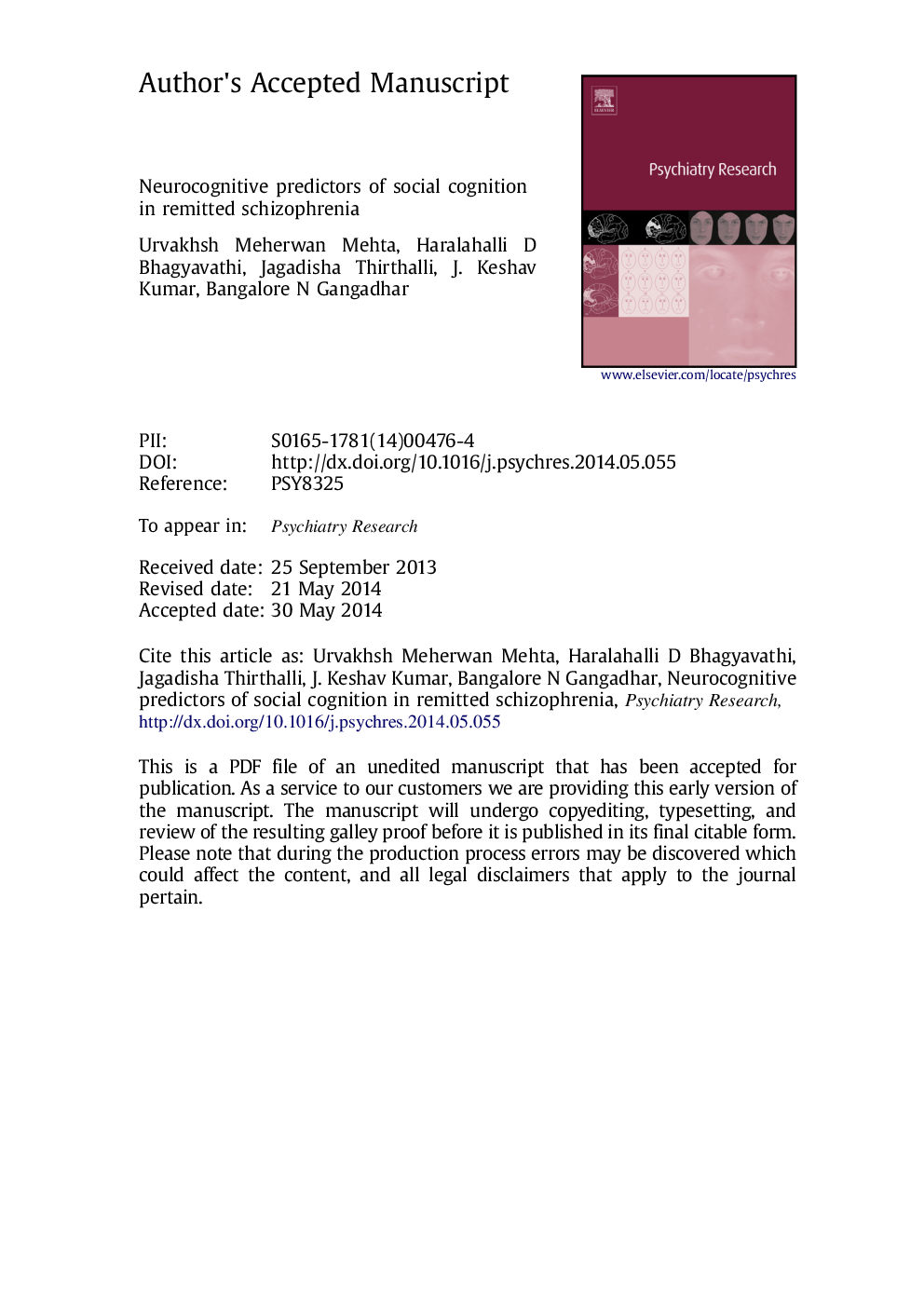| Article ID | Journal | Published Year | Pages | File Type |
|---|---|---|---|---|
| 10304233 | Psychiatry Research | 2014 | 26 Pages |
Abstract
Knowledge of how specific neurocognition (NC) abilities predict social cognition (SC) in schizophrenia has potential to guide novel integrated cognitive-remediation therapies. The scope of studies conducted in this field is limited as they have not examined a comprehensive set of SC domains and they employ small sample sizes of heterogeneous patient groups. We studied a broad range of NC (sustained attention, processing speed, verbal/visual memory and visual processing/encoding, cognitive flexibility and planning) and SC [different levels of theory of mind (ToM)], attributional bias, emotion recognition and social perception] abilities in 170 remitted schizophrenia patients. Multivariate regression analyses revealed attention and planning as predictors of 1st order ToM. Memory encoding was the strongest predictor of 2nd order ToM. Faux-pas recognition, social perception and emotion recognition were influenced by a combination of cognitive flexibility and memory encoding abilities. Overall, NC predicted anywhere between ~4% and 40% of variance observed in specific SC sub-dimensions of attributional bias (4%), 1st order (19%) and 2nd order (12%) theory of mind, faux-pas recognition (28%), social perception (29%) and emotion recognition (39%). Individual SC abilities are predicted by distinctive as well as shared NC abilities. These findings have important implications for integrated cognitive remediation.
Related Topics
Life Sciences
Neuroscience
Biological Psychiatry
Authors
Urvakhsh Meherwan Mehta, Haralahalli D. Bhagyavathi, Jagadisha Thirthalli, Keshav J. Kumar, Bangalore N. Gangadhar,
